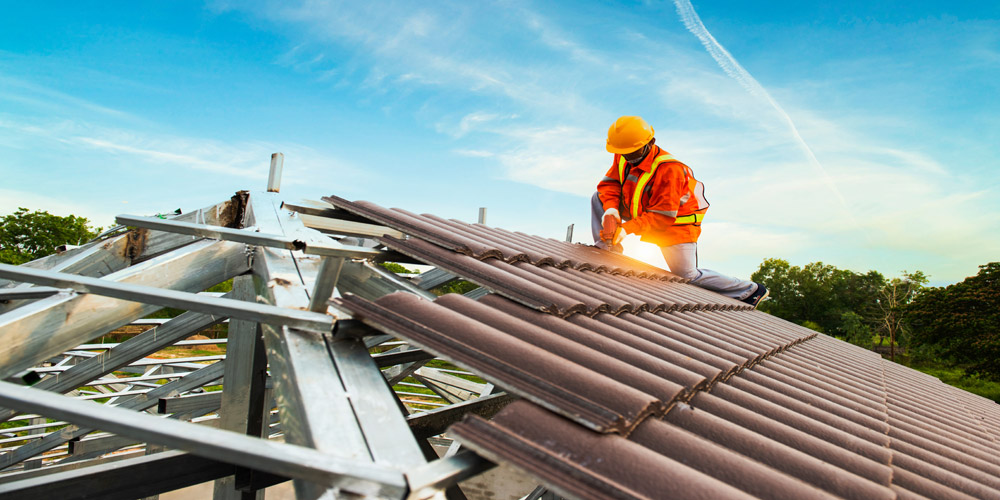A Reputable Emergency Roofing Contractor
Your roof is one of the most critical components of your home, providing shelter and protection from the elements. When it fails, the need for immediate repair becomes paramount. Finding a reputable emergency roofing contractor can be a daunting task, especially when time is of the essence. This guide will walk you through the essential steps to ensure you hire a professional who can promptly and effectively address your roofing emergency.
1. Understanding the Importance of Immediate Action
Roofing emergencies can stem from various causes, including severe weather conditions, falling debris, or structural failure. Prompt action is crucial to prevent further damage to your property. Water infiltration, for example, can lead to mold growth, electrical issues, and structural degradation. A reputable emergency roofing contractor will prioritize your situation and provide immediate assistance to mitigate these risks.
2. Identifying the Signs of a Roofing Emergency
Before you start searching for a contractor, it’s essential to recognize what constitutes a roofing emergency. Common signs include:
>>> Severe leaks: Visible water pouring into your home.
>>> Storm damage: Missing, cracked, or broken shingles caused by wind or hail.
>>> Structural damage: Sagging roof sections or visible gaps.
>>> Falling debris: Trees or large branches that have damaged your roof.
Understanding these signs will help you communicate the urgency of your situation when contacting potential contractors.
3. Steps to Finding a Reputable Emergency Roofing Contractor
a. Conduct Thorough Research
Start by gathering a list of potential contractors. Recommendations from friends, family, or neighbors can be invaluable. Additionally, online resources such as the Better Business Bureau (BBB), Angie’s List, and Google Reviews can provide insights into the reputation and reliability of various roofing companies.
b. Verify Credentials
Ensure that the contractors you’re considering are licensed and insured. Licensing requirements vary by state, but a legitimate contractor should readily provide their license number and proof of insurance. Insurance is crucial as it protects you from liability in case of accidents or further damage during the repair process.
c. Check Experience and Specialization
Not all roofing contractors are equipped to handle emergencies. Look for contractors with extensive experience in emergency roof repairs. Ask about their response time and the availability of emergency services. A contractor specializing in emergency repairs will be better prepared to address urgent issues promptly and efficiently.
d. Assess Online Presence and Reviews
A reputable contractor will have a professional online presence, including a well-maintained website and active social media profiles. Check online reviews and ratings on multiple platforms to get a balanced view of their customer service and work quality. Look for consistent positive feedback and pay attention to how the company responds to negative reviews.
e. Request References
Ask potential contractors for references from previous clients who had similar emergency repairs. Speaking directly with past customers can provide valuable insights into the contractor’s reliability, workmanship, and response time.
4. Evaluating the Contractor’s Proposal
Once you’ve shortlisted a few contractors, request detailed proposals from each. The proposals should include:
>>> Scope of work: A detailed description of the work to be done, including materials to be used.
>>> Timeline: Estimated start and completion dates.
>>> Cost: A clear breakdown of costs, including labor, materials, and any additional fees.
>>> Warranty: Information on workmanship and material warranties.
Comparing these proposals will help you make an informed decision based on the quality of service and cost.
5. Avoiding Common Pitfalls
a. Be Wary of Storm Chasers
After a major storm, you might encounter contractors going door-to-door offering their services. These “storm chasers” often come from out of town and might not have the necessary experience or credentials. They may also use high-pressure sales tactics. Always take the time to research and verify any contractor who approaches you unsolicited.
b. Avoid Upfront Payments
A reputable contractor will not demand a large upfront payment before starting the work. Be cautious of contractors who request full payment in advance. Instead, a reasonable deposit followed by scheduled payments based on the progress of the work is a standard practice.
c. Read the Fine Print
Carefully read the contract before signing. Ensure that all verbal agreements are documented in writing. Pay attention to clauses regarding unforeseen issues, payment terms, and warranty coverage. Don’t hesitate to ask for clarifications on any ambiguous terms.
6. Maintaining Communication
Effective communication with your contractor is key to ensuring a smooth repair process. Keep the lines of communication open and ask for regular updates on the progress of the work. A professional contractor will keep you informed and address any concerns promptly.
7. Post-Repair Inspection and Maintenance
Once the emergency repairs are completed, conduct a thorough inspection with the contractor to ensure that all agreed-upon work has been done to your satisfaction. Ask for maintenance tips to prolong the life of your roof and prevent future emergencies. Regular inspections and maintenance can help identify potential issues before they become major problems.
8. Building a Long-Term Relationship
If you’re satisfied with the emergency repairs, consider establishing a long-term relationship with the contractor for regular maintenance and future repairs. Having a trusted roofing professional on call can provide peace of mind and ensure that your roof remains in good condition.
A Reputable Emergency Roofing Contractor
Finding a reputable emergency roofing contractor requires diligence and careful consideration. By following the steps outlined in this guide, you can ensure that you hire a professional who will provide prompt, effective, and high-quality repairs. Remember that the key to protecting your home and investment is to act quickly, verify credentials, and maintain clear communication throughout the repair process. By doing so, you’ll be better prepared to handle any roofing emergency that comes your way.
